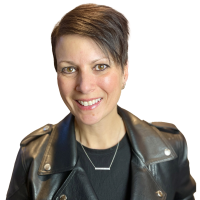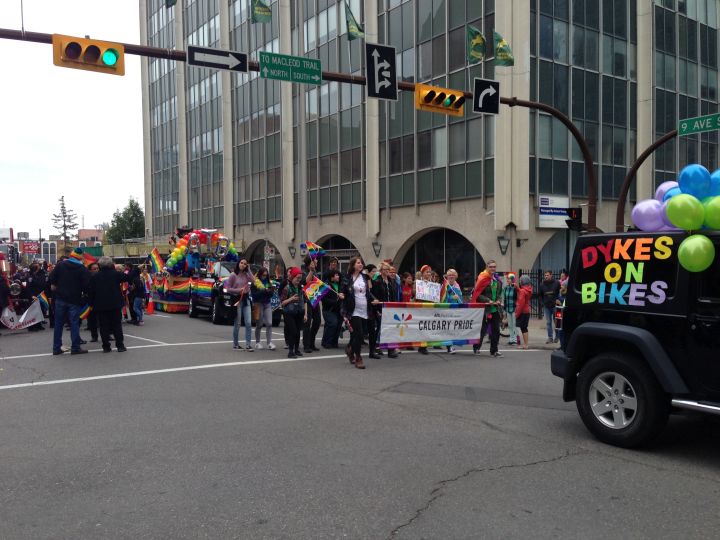June is officially Pride Month, but unlike most other major cities in Canada, Calgary holds its Pride celebrations in September. With controversy raging in a number of other cities regarding the participation of police officers in Pride parades, that gives Calgary the unique opportunity to benefit from hindsight and see how other have handled the matter.

In Toronto, for example, Pride organizers decided to ban all uniformed officers and police floats from the parade. Additionally, LGBTQ officers were prohibited from marching in uniform in an alternative Pride event called the “First Responders Unity Festival.” Some Toronto police officers, eager to show their support for Pride, ended up travelling to New York instead to take part in Pride festivities there.
WATCH BELOW: Heated debate over Calgary Pride’s decision to exclude uniformed police from 2017 parade

Conversely, in Edmonton, Pride organizers took the opposite approach. A statement on the Edmonton Pride website notes that organizers concluded it would be”wrong to ask the police and military to stay away from the Pride Parade in 2017.” A separate statement explains how they believe police involvement to be “much more of a statement of progress than it is a statement of oppression.”
Vancouver Pride took a somewhat more nuanced approach, wherein most police officers marched out of uniform but a segment of the contingent was allowed to march in uniform. It’s a needlessly complicated way of addressing the matter, but it still sends a message that police participation is welcome.
Unfortunately, rather than follow Edmonton’s bold and inclusive stance — or even the more muddled Vancouver approach — Calgary Pride organizers caved to pressure and followed the lead of Toronto.
READ MORE: Ottawa police officers asked by pride group to not wear uniforms in parade
Calgary Pride announced on Wednesday that uniformed police officers would not be allowed to march in the parade — a reversal of the policy of previous years when uniformed officers were welcome participants in the parade. Uniformed police officers, however, will be on site providing security for the event. Officers can instead march in civilian clothes.
Look, this is Calgary Pride’s party, and they’re free to invite or not invite whoever they want. Ultimately, though, this boils down to a simple question — are police allies or not?
One could easily go back in history and find examples of police conduct that was not at all in keeping with being any sort of an ally. But that’s why police participation is such a powerful symbol.
In explaining their decision, Calgary Pride cites “historical oppression and institutionalized racism” as well as “the potentially negative association with weapons, uniforms, and other symbols of law enforcement.” But of course, police are going to be present at the event with all of those elements ensuring that Pride participants are kept safe.
WATCH BELOW: Truro Police to march in Pride Parade, other uniformed officers welcome

If there’s an issue with having police officers involved, then why have them there at all? The idea of having people hide and downplay who they are in order to participate does not seem to be in keeping with what Pride is all about.
The president of Calgary Pride also suggested that the sight of uniformed police officers could be triggering to LGBTQ people who have come from countries where law enforcement is very hostile to the community. But then what a powerful message is it to show that here in Canada the police are an ally and will protect your right to be and celebrate who are. Why lump our police forces in with such brutal human rights abusers?
The decision has certainly divided members of the LGBTQ community and their political allies. Calgary Mayor Naheed Nenshi expressed his disappointment with the decision, saying that “understanding diversity is about understanding inclusion.”
READ MORE: Black Lives Matter Vancouver holds march, voices opposition to police marching in Pride parade
City Councillor Diane Colley-Urquhart went even further, vowing not to march in the Calgary Pride Parade unless the decision is reversed. Urquhart called on Calgarians to “put pressure” on Pride organizers for a decision she says “flies in the face of everything they stand for as a community.”
It’s possible that Pride may still reverse itself, especially if there’s pushback from the community. It’s also likely the case that many Pride supporters don’t want to exacerbate the controversy or cast negative aspersions on the event.
Even in 2017 with all the progress that’s been made, Pride still matters. That’s why police participation should still matter, too.
Rob Breakenridge is host of “Afternoons with Rob Breakenridge” on Calgary’s NewsTalk 770 and a commentator for Global News.








Comments